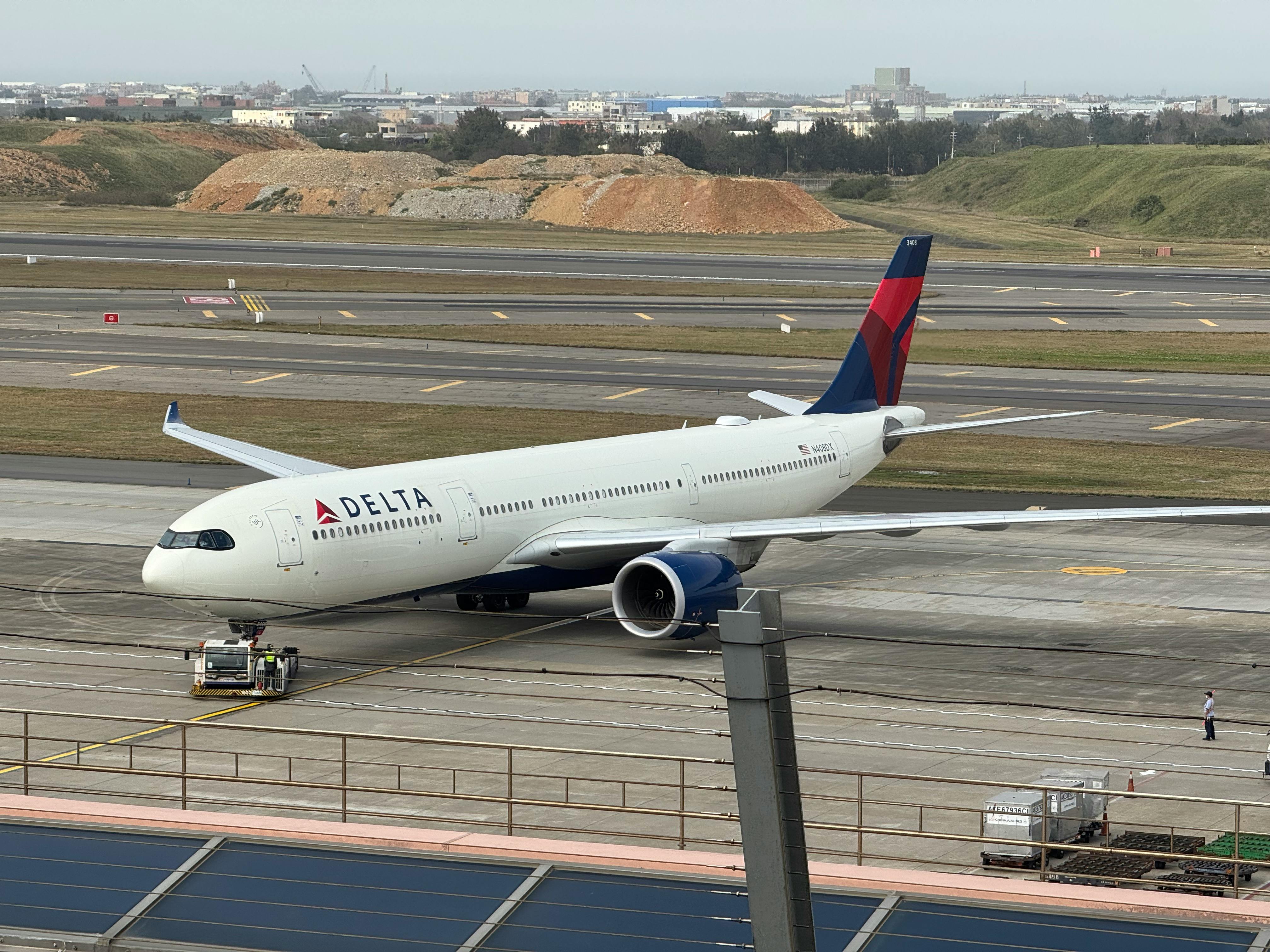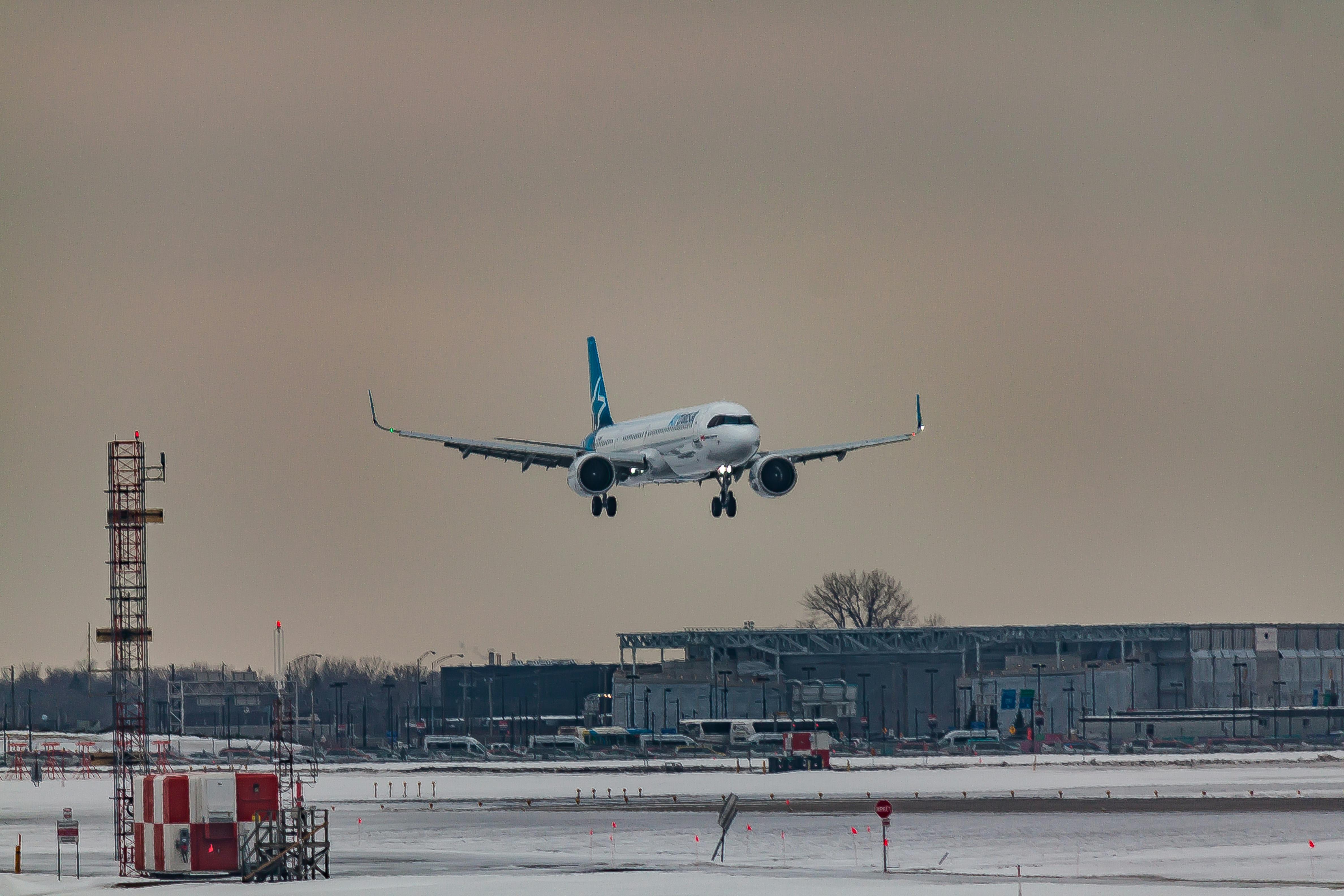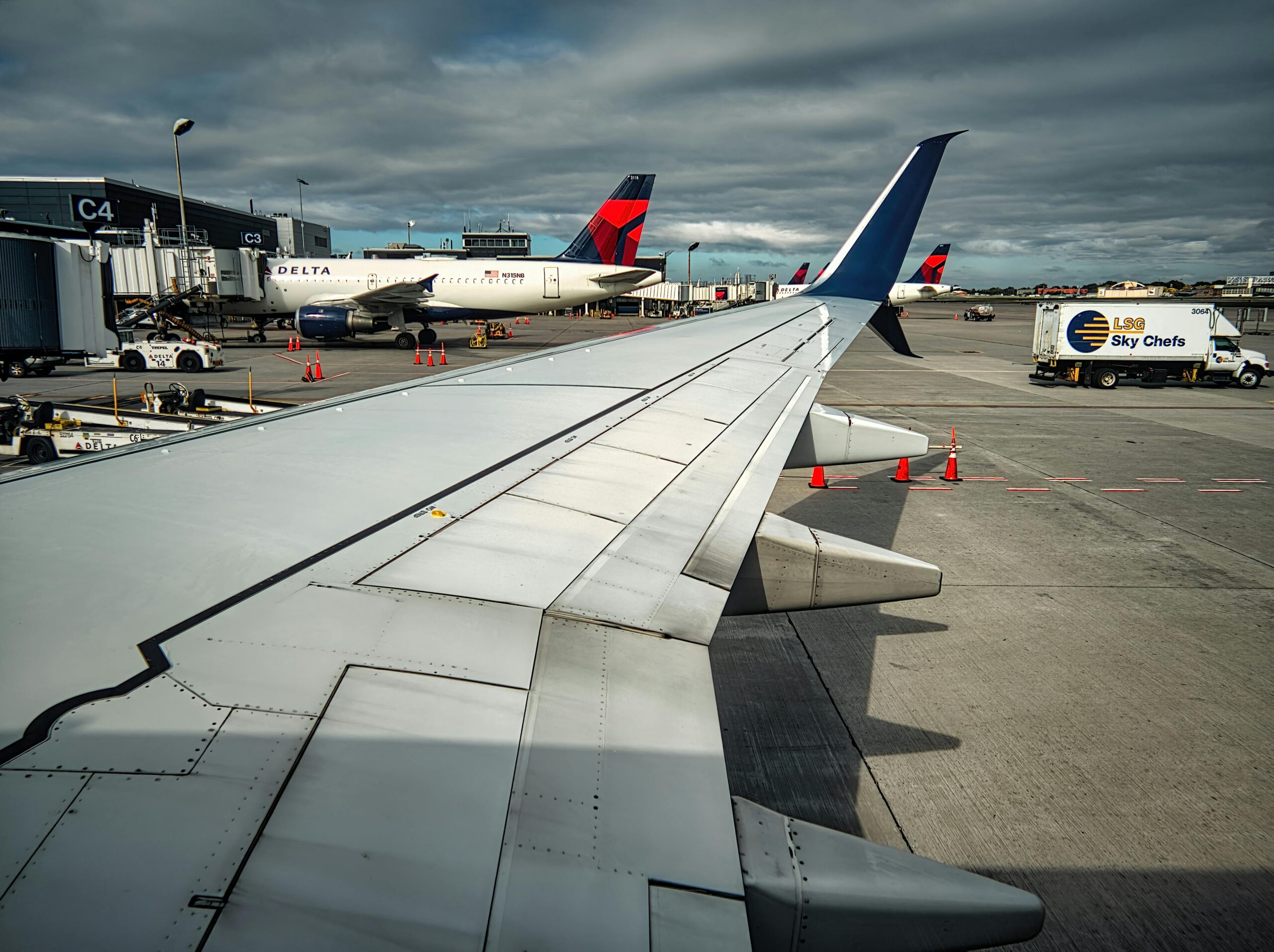Hey there folks, did you hear about the Delta Flight DL275 that got diverted LAX? Man, what a mess that was! This unexpected turn of events sure had a big impact on Delta’s operations worldwide. The airline, known for its smooth operations, was caught off guard by this diversion.
Passengers were left scratching their heads, wondering what in the world was going on. Delta’s customer service team, usually on top of things, seemed a bit overwhelmed by the whole situation. The diverted LAX flight caused a ripple effect throughout Delta’s network, leading to delays and cancellations all around.
Now, you might be thinking, “How could a single flight diversion cause such chaos?” Well, my friends, the airline industry is a delicate ecosystem, and any disruption can send shockwaves far and wide. Delta, usually a well-oiled machine, found itself scrambling to rearrange flights and accommodate stranded passengers.
So, next time you’re flying with Delta, keep in mind that even the biggest airlines can face unexpected challenges. The impact on Delta’s Operations Globally from the DL275 diversion at LAX serves as a reminder that in the aviation world, anything can happen.
Unraveling the Delta Flight DL275 Diverted at LAX Incident

Unraveling the Delta Flight DL275 Diverted at LAX Incident
Delta Flight DL275 was recently diverted at LAX, causing quite a stir in the aviation world. This unexpected event has raised concerns about how it might impact Delta’s global operations. Let’s delve into the details and explore the potential ramifications of this incident on one of the world’s largest airlines.
What Happened with Delta Flight DL275 at LAX?
The incident involving Delta Flight DL275 being diverted at LAX unfolded swiftly, catching both passengers and airline officials off guard. The flight, which was en route to its destination, faced unforeseen circumstances that necessitated an emergency landing at Los Angeles International Airport.
Upon landing, the airline crew and authorities swiftly took action to ensure the safety and well-being of all passengers and crew members on board. While the exact cause of the diversion remains unclear, investigations are underway to shed light on the circumstances that led to this unexpected turn of events.
Impact on Delta’s Global Operations
The diversion of Delta Flight DL275 at LAX is likely to have ripple effects on the airline’s global operations. Here are some potential ways in which this incident could impact Delta’s services and reputation worldwide:
-
Operational Disruptions: The sudden diversion of a key flight like DL275 can lead to operational disruptions, causing delays and potential cancellations of other flights within Delta’s network.
-
Passenger Trust: Incidents like these can erode passenger trust in an airline’s ability to ensure a safe and seamless travel experience. Delta will need to reassure its customers of their commitment to safety and reliability in the wake of this event.
-
Financial Implications: Emergency landings and diversions incur additional costs for airlines, including fuel expenses, passenger accommodations, and potential compensations. Delta may need to assess the financial impact of this incident on its bottom line.
-
Reputational Damage: Any negative publicity stemming from the diversion at LAX could harm Delta’s reputation in the eyes of both existing and prospective customers. Rebuilding trust and credibility will be crucial for the airline in the aftermath of this incident.
Delta’s Response and Future Strategies
In response to the diversion of Flight DL275 at LAX, Delta is likely to implement strategic measures to mitigate the impact on its global operations. These may include:
-
Enhanced Safety Protocols: Delta may review and reinforce its safety protocols and procedures to prevent similar incidents in the future and ensure the well-being of passengers and crew members.
-
Communication and Transparency: Clear and transparent communication with the public, passengers, and stakeholders will be essential for Delta to address concerns, provide updates, and maintain trust in its brand.
-
Operational Adjustments: The airline may need to make operational adjustments to accommodate any disruptions caused by the diversion, such as rescheduling flights or reallocating resources to minimize the impact on its services.
As Delta navigates the aftermath of the Flight DL275 diversion at LAX, the airline will need to demonstrate resilience, agility, and a commitment to prioritizing safety and customer satisfaction in order to uphold its position as a leading global carrier.
Conclusion
The diversion of Delta Flight DL275 at LAX serves as a stark reminder of the unpredictability of air travel and the challenges that airlines like Delta face in ensuring the safety and security of their operations. As the investigation into this incident unfolds, Delta will need to address the ramifications of the diversion proactively and transparently to safeguard its reputation and reassure passengers of its unwavering commitment to safety and operational excellence.
The Inside Story: Delta’s Emergency Landing at LAX

Delta Flight DL275 made headlines recently as it was forced to make an emergency landing at Los Angeles International Airport (LAX). The incident sent shockwaves through the aviation industry and raised questions about how this diversion will impact Delta’s global operations. Let’s delve into the inside story of this unexpected event and explore its potential ramifications.
What Happened at LAX?
The emergency landing of Delta Flight DL275 at LAX was triggered by an undisclosed mechanical issue. The pilot, displaying exceptional skill and composure, safely landed the aircraft, ensuring the well-being of all passengers and crew on board. The incident prompted an immediate response from Delta’s operations team, who swiftly initiated contingency plans to manage the situation.
Delta’s Response and Recovery Efforts
In the aftermath of the emergency landing, Delta Airlines activated its crisis management protocols to assess the impact on its operations. The airline’s priority was to minimize disruptions and ensure the continuity of its services. Delta’s dedicated team worked tirelessly to investigate the cause of the mechanical issue and implement necessary repairs to return the aircraft to service.
Impact on Delta’s Global Operations
The diversion of Flight DL275 at LAX undoubtedly had ripple effects on Delta’s global operations. As one of the leading airlines in the world, Delta operates a vast network of flights connecting major cities across the globe. Any disruption in its schedule can have widespread implications for passengers, cargo shipments, and overall business performance.
Operational Challenges and Adjustments
The unexpected diversion posed significant challenges for Delta, requiring the airline to make swift adjustments to its flight schedules and aircraft rotations. Delta’s operations team faced the daunting task of reassigning crew members, accommodating affected passengers, and rearranging logistics to mitigate the impact of the incident on its overall operations.
Ensuring Passenger Safety and Satisfaction
Despite the disruptions caused by the emergency landing, Delta Airlines remained committed to prioritizing passenger safety and satisfaction. The airline provided timely updates to affected passengers, offering support and assistance to help them reach their destinations with minimal inconvenience. Delta’s proactive communication and customer service efforts were essential in maintaining trust and loyalty among its clientele.
Future Preparedness and Risk Mitigation
The incident at LAX served as a stark reminder of the unpredictable nature of air travel and the importance of preparedness in handling emergencies. Delta Airlines will likely review its operational procedures, safety protocols, and maintenance practices to enhance its resilience against unforeseen events. By learning from this experience, Delta can further strengthen its risk mitigation strategies and bolster its reputation as a reliable airline.
In conclusion, the emergency landing of Delta Flight DL275 at LAX underscored the challenges and complexities inherent in the aviation industry. While the incident posed temporary disruptions to Delta’s global operations, the airline’s swift response and commitment to safety were commendable. By leveraging this event as a learning opportunity, Delta can reinforce its operational resilience and continue to uphold its reputation as a trusted carrier in the competitive aviation landscape.
Delta Flight DL275 Diverted: What Lies Ahead for Delta Airlines?

Delta Flight DL275 Diverted at LAX: How Will it Affect Delta’s Global Operations?
Delta Airlines faced a challenging situation when Flight DL275 was diverted at Los Angeles International Airport (LAX). This unexpected event has raised questions about the impact it might have on Delta’s operations worldwide. Let’s delve into what lies ahead for Delta Airlines in the aftermath of this diversion.
Why Was Delta Flight DL275 Diverted?
The diversion of Flight DL275 at LAX was due to a mechanical issue that required immediate attention. As a safety precaution, the pilot made the decision to divert the flight to LAX to ensure the well-being of the passengers and crew on board. Despite the inconvenience caused by the diversion, safety always remains the top priority for airlines like Delta.
Impact on Delta’s Global Operations
The diversion of Flight DL275 at LAX is likely to have ripple effects on Delta’s global operations. Here are some potential ways in which this incident could impact the airline:
- Flight Delays: The diversion may lead to delays in subsequent flights, causing disruptions to Delta’s flight schedules.
- Operational Adjustments: Delta may need to make operational adjustments to accommodate the diverted flight and ensure minimal disruption to its services.
- Customer Experience: Passengers affected by the diversion may experience inconvenience and dissatisfaction, impacting Delta’s reputation for customer service.
- Financial Implications: Dealing with diversions and their aftermath can incur additional costs for airlines, affecting Delta’s financial performance.
Delta’s Response to the Incident
In response to the diversion of Flight DL275 at LAX, Delta Airlines has issued a statement reassuring passengers and stakeholders that safety remains paramount. The airline is working diligently to address the situation and minimize the impact on its operations moving forward. Delta’s swift and transparent communication during such incidents is crucial in maintaining trust and confidence among its customers.
What Lies Ahead for Delta Airlines?
Looking ahead, Delta Airlines will need to focus on several key areas to mitigate the impact of the diversion and ensure smooth operations in the future:
- Maintenance Procedures: Reviewing and enhancing maintenance procedures to prevent similar incidents in the future.
- Operational Resilience: Building operational resilience to effectively manage unforeseen events like diversions.
- Customer Communication: Enhancing communication strategies to keep passengers informed and supported during disruptions.
- Reputation Management: Proactively managing the impact on Delta’s reputation through transparent and proactive measures.
Conclusion
The diversion of Delta Flight DL275 at LAX has posed challenges for Delta Airlines, but it also presents an opportunity for the airline to demonstrate its resilience and commitment to safety and customer satisfaction. By addressing the aftermath of the diversion effectively and implementing measures to prevent future incidents, Delta can navigate through this challenging period and emerge stronger in the competitive aviation industry.
Analyzing the Aftermath: Delta’s Global Strategy Post-LAX Diversion

Delta’s Global Strategy Post-LAX Diversion: A Closer Look
Delta Flight DL275’s recent diversion at LAX has sparked curiosity about how it will impact Delta’s global operations. Let’s delve into the aftermath of this event and analyze Delta’s strategy moving forward.
Impact on Delta’s Operations Globally
- The diversion of Flight DL275 at LAX has caused disruptions in Delta’s flight schedules worldwide.
- Passengers on affected flights experienced delays and inconvenience due to the unexpected change in plans.
- Delta’s operational teams had to swiftly rearrange flight routes and accommodate passengers on alternative flights.
- The global network of Delta Airlines was strained as a result of this unforeseen event, leading to logistical challenges.
- The incident highlighted the importance of robust contingency plans in the aviation industry to mitigate disruptions effectively.
Delta’s Response and Global Strategy Adjustment
- In response to the LAX diversion, Delta implemented measures to minimize the impact on its overall operations.
- The airline focused on rebooking affected passengers promptly to ensure minimal disruption to travel plans.
- Delta’s communication channels were utilized to keep passengers informed about the situation and any changes to their flights.
- The incident prompted Delta to review and enhance its crisis management protocols to handle similar situations more efficiently in the future.
- Delta’s commitment to passenger safety and satisfaction remained a top priority throughout the ordeal.
Historical Context and Future Considerations
- Delta Airlines has a history of adapting to unforeseen challenges in the aviation industry with resilience and agility.
- The LAX diversion serves as a learning opportunity for Delta to strengthen its operational preparedness and response mechanisms.
- Global events, such as flight diversions, underscore the complex nature of managing a vast airline network and the need for proactive risk management strategies.
- Delta’s ability to navigate through challenges like the LAX diversion demonstrates its commitment to maintaining operational excellence and customer service excellence.
Comparing Delta’s Response to Industry Standards
- Delta’s handling of the LAX diversion can be compared to how other airlines have managed similar incidents in the past.
- The airline industry as a whole faces occasional disruptions due to various factors, highlighting the importance of effective crisis management.
- Delta’s proactive approach to mitigating the impact of the diversion reflects its dedication to customer satisfaction and operational efficiency.
In conclusion, the aftermath of Delta Flight DL275’s diversion at LAX sheds light on the complexities of managing a global airline network. Delta’s response to the incident and its strategic adjustments demonstrate the airline’s commitment to operational resilience and passenger well-being. As Delta continues to navigate the ever-changing aviation landscape, lessons learned from events like the LAX diversion will shape its future operational strategies and crisis management protocols.
A Closer Look at Delta Flight DL275’s Unexpected Turn

Delta Flight DL275’s unexpected turn at LAX has caused quite a stir in the aviation industry. Let’s take a closer look at how this diversion will impact Delta’s global operations.
What Happened with Delta Flight DL275?
Delta Flight DL275, scheduled to fly from Los Angeles International Airport (LAX) to New York’s John F. Kennedy International Airport, was unexpectedly diverted back to LAX shortly after takeoff. The reason for this diversion remains unclear, leaving passengers and aviation experts puzzled.
Impact on Delta’s Global Operations
The diversion of Delta Flight DL275 is likely to have ripple effects on Delta’s global operations. Here are some potential impacts to consider:
- Flight Delays: The sudden diversion of DL275 will likely lead to delays in other Delta flights, causing disruptions to passengers’ travel plans.
- Operational Challenges: Delta’s operations team will need to reorganize flight schedules and crew assignments to accommodate the changes caused by the diversion.
- Customer Service: Passengers on DL275 and other affected flights may face challenges in rebooking their travel arrangements, leading to increased customer service demands.
How Will Delta Manage the Situation?
In response to the diversion of DL275, Delta Airlines is expected to implement the following measures to minimize the impact on its global operations:
- Communication: Delta will need to provide clear and timely updates to affected passengers to keep them informed about the situation and their options.
- Operational Adjustments: The airline may need to make operational adjustments, such as deploying additional aircraft or crew members to mitigate the disruptions caused by the diversion.
- Compensation: Delta may offer compensation to passengers affected by the flight diversion, such as meal vouchers, hotel accommodations, or rebooking assistance.
Historical Context and Comparison
Flight diversions are not uncommon in the aviation industry, and airlines like Delta have protocols in place to handle such situations. In 2018, a similar incident occurred when Delta Flight 30 from Atlanta to London was diverted to Shannon, Ireland, due to an onboard medical emergency. The airline managed the situation effectively, minimizing the impact on its operations and passengers.
Practical Examples
To illustrate the potential impact of flight diversions on airlines’ operations, consider the case of British Airways Flight 2276. In 2015, the flight was evacuated on the runway at Las Vegas McCarran International Airport due to an engine fire. The incident resulted in flight cancellations and significant operational disruptions for the airline.
Conclusion
As Delta Flight DL275’s unexpected turn continues to unfold, the airline faces challenges in managing the impact on its global operations. By implementing effective communication strategies, operational adjustments, and customer service initiatives, Delta can navigate this situation while prioritizing the safety and satisfaction of its passengers. Stay tuned for further updates on how Delta addresses this unexpected turn and its implications for the aviation industry.
Delta’s Dilemma: Managing Disruptions in Global Operations

Delta’s Dilemma: Managing Disruptions in Global Operations
Delta Flight DL275 recently experienced an unexpected diversion at Los Angeles International Airport (LAX), sparking concerns about how this incident might impact Delta’s global operations. Such disruptions are not uncommon in the aviation industry, where unforeseen events can have far-reaching consequences on an airline’s schedule, customer satisfaction, and overall performance.
Challenges in Global Operations
Managing a global airline like Delta comes with a myriad of challenges, from fluctuating fuel prices and regulatory hurdles to unpredictable weather patterns and operational mishaps. These factors can all contribute to disruptions in flight schedules, leading to delays, cancellations, and diversions like the one experienced by Flight DL275 at LAX.
Impact on Delta’s Operations
The diversion of Flight DL275 at LAX is likely to have ripple effects on Delta’s operations globally. Here are some potential consequences that the airline may face in the aftermath of this incident:
- Rebooking Passengers: Passengers on the diverted flight will need to be accommodated on alternative flights, which could result in overbooked planes and logistical challenges for Delta’s reservation system.
- Crew Scheduling: The diversion may have disrupted the scheduling of flight crews, leading to potential delays in subsequent flights and increased labor costs for the airline.
- Aircraft Turnaround: The unexpected diversion may have impacted the turnaround time of the aircraft, causing delays in its next scheduled flight and affecting the overall efficiency of Delta’s fleet.
- Customer Service: Managing customer expectations and addressing concerns related to the diversion will require additional resources and manpower from Delta’s customer service team.
Strategies for Mitigating Disruptions
To minimize the impact of such disruptions on its global operations, Delta can implement the following strategies:
- Proactive Communication: Keeping passengers informed about delays, diversions, and cancellations in real-time can help manage expectations and reduce frustration.
- Flexible Scheduling: Maintaining a flexible flight schedule and crew roster can help Delta quickly adjust to unforeseen events without causing significant disruptions.
- Contingency Planning: Developing robust contingency plans for handling diversions, cancellations, and other disruptions can ensure that Delta responds swiftly and effectively to unexpected situations.
Conclusion
In conclusion, the diversion of Delta Flight DL275 at LAX highlights the challenges that airlines face in managing disruptions in their global operations. By implementing proactive communication strategies, maintaining flexibility in scheduling, and investing in robust contingency planning, Delta can navigate such incidents more effectively and minimize their impact on its overall performance. As the aviation industry continues to evolve, adaptability and resilience will be key for airlines like Delta to thrive in an increasingly complex and unpredictable operating environment.
The Ripple Effect: How LAX Diversion Impacts Delta’s Network

The Ripple Effect: How LAX Diversion Impacts Delta’s Network
The recent diversion of Delta Flight DL275 at Los Angeles International Airport (LAX) has sent ripples through Delta’s global operations, showcasing the interconnected nature of the airline industry. This unexpected event has raised questions about how such incidents can have far-reaching consequences on an airline’s network and services.
Impact on Delta’s Operations Globally
The diversion of Delta Flight DL275 at LAX has resulted in a series of operational challenges for Delta Air Lines across its global network. Here are some key ways in which this incident is affecting Delta’s operations worldwide:
-
Flight Delays: The diversion has led to delays in the airline’s flight schedules, causing disruptions for passengers traveling to various destinations.
-
Aircraft Availability: With one of its aircraft unexpectedly grounded at LAX, Delta may face challenges in ensuring the availability of planes for other routes, potentially leading to further delays and cancellations.
-
Crew Scheduling: The diversion has also impacted the scheduling of flight crews, as they may need to be rearranged to accommodate the changes in flight operations.
How Will it Affect Delta’s Global Operations?
The impact of the LAX diversion on Delta’s global operations is significant, as the airline operates a vast network of flights connecting various destinations around the world. Here are some potential effects this incident may have on Delta’s operations globally:
-
Financial Losses: The disruptions caused by the diversion can result in financial losses for Delta, including costs associated with accommodating affected passengers and rearranging flight schedules.
-
Reputation Management: Any prolonged disruptions or inconvenience to passengers can also affect Delta’s reputation as a reliable airline, potentially leading to customer dissatisfaction and decreased loyalty.
-
Operational Resilience: Delta will need to demonstrate operational resilience in the face of such unexpected events, ensuring that it can quickly adapt to changes and minimize the impact on its overall operations.
Historical Context
Incidents like the diversion of Delta Flight DL275 at LAX are not uncommon in the aviation industry, where factors such as weather, technical issues, and air traffic congestion can lead to unexpected disruptions. Airlines like Delta must constantly adapt and respond to such challenges to maintain their operations and uphold their commitment to passenger safety and service.
In conclusion, the diversion of Delta Flight DL275 at LAX serves as a reminder of the complex and interconnected nature of the airline industry. As Delta works to address the operational impacts of this incident, it underscores the need for airlines to remain agile, resilient, and customer-focused in navigating unexpected disruptions and maintaining the integrity of their global operations.
Delta Airlines in Crisis: Navigating the Fallout of DL275 Diversion

Delta Airlines in Crisis: Navigating the Fallout of DL275 Diversion, Delta Flight DL275 Diverted at LAX: How Will it Affect Delta’s Global Operations?, Delta Flight DL275 Diverted LAX: Impact on Delta’s Operations Globally
Delta Airlines, a prominent player in the aviation industry, recently faced a crisis as Flight DL275 was diverted at Los Angeles International Airport (LAX). This unexpected event has raised concerns about the impact on Delta’s global operations and the airline’s ability to navigate through this challenging situation.
What Led to the Diversion of Delta Flight DL275 at LAX?
The diversion of Delta Flight DL275 at LAX was reportedly due to unforeseen circumstances, which forced the pilot to make a decision to land at the nearest available airport. While specific details surrounding the incident remain unclear, diversions are not uncommon in the airline industry and can be caused by various factors such as weather conditions, mechanical issues, or medical emergencies onboard.
Fallout of DL275 Diversion on Delta’s Global Operations
The diversion of Flight DL275 at LAX is likely to have ripple effects on Delta’s global operations. Some potential implications may include:
- Flight Delays: Passengers traveling on other Delta flights may experience delays as the airline works to accommodate the changes caused by the diversion of DL275.
- Operational Disruptions: The sudden diversion of a major flight can disrupt Delta’s operational schedule, leading to logistical challenges and adjustments in flight routes.
- Reputation Management: Incidents like these can impact Delta’s reputation among passengers and stakeholders, potentially affecting customer loyalty and trust in the airline.
How Will Delta Navigate Through This Crisis?
In response to the crisis triggered by the diversion of Flight DL275 at LAX, Delta Airlines will need to adopt a strategic approach to mitigate the fallout and maintain its global operations smoothly. Some potential strategies that Delta may consider include:
- Communication: Clear and transparent communication with passengers, employees, and the public is crucial to managing the crisis effectively.
- Operational Flexibility: Flexibility in adjusting flight schedules, accommodating affected passengers, and addressing operational challenges is key to navigating through the crisis.
- Customer Support: Providing adequate support and assistance to passengers affected by the diversion, such as rebooking options, compensation, and updates on the situation.
Historical Context: Delta’s Response to Previous Crises
Throughout its history, Delta Airlines has faced various crises and challenges, demonstrating resilience and adaptability in overcoming adversity. For example, during the COVID-19 pandemic, Delta implemented strict safety measures and operational changes to ensure the well-being of passengers and staff. By drawing on past experiences and lessons learned, Delta can leverage its strengths to navigate through the fallout of the DL275 diversion at LAX.
Conclusion
As Delta Airlines grapples with the aftermath of the diversion of Flight DL275 at LAX, the airline’s ability to navigate through this crisis will be put to the test. By prioritizing effective communication, operational flexibility, and customer support, Delta can minimize the impact on its global operations and uphold its reputation as a leading player in the aviation industry. Despite the challenges posed by this unexpected event, Delta’s resilience and strategic approach will play a crucial role in steering the airline back on course.
From LAX to the World: Delta’s Resilience Tested

Delta Flight DL275’s unexpected diversion at LAX has sent shockwaves through the airline industry, particularly for Delta Airlines. The incident has raised concerns about how this unexpected event will impact Delta’s global operations. Let’s delve into the details and explore the potential ramifications of this incident.
Delta Flight DL275: A Sudden Change of Course
Delta Flight DL275, scheduled to depart from Los Angeles International Airport (LAX) to Shanghai, China, was forced to divert back to LAX due to undisclosed reasons. This unexpected turn of events has left passengers and airline officials alike scrambling to understand the implications.
Delta’s Resilience Tested
Delta Airlines, known for its robust operational resilience, is now facing a critical test in the aftermath of the diversion of Flight DL275. The airline’s ability to adapt and recover from such unforeseen disruptions will be closely scrutinized by both industry experts and passengers.
Impact on Delta’s Global Operations
The repercussions of this diversion are not limited to the immediate inconvenience caused to passengers on board. Delta’s global operations could potentially face a ripple effect, impacting various aspects of the airline’s services worldwide.
Key Factors to Consider
Several factors come into play when assessing the broader impact of Flight DL275’s diversion on Delta’s operations globally:
- Flight Scheduling: The sudden disruption of Flight DL275 may lead to cascading effects on Delta’s overall flight scheduling, potentially causing delays and cancellations in other parts of the world.
- Customer Confidence: Instances of in-flight diversions can shake passenger confidence in an airline’s safety and reliability, which could affect Delta’s customer loyalty and reputation.
- Operational Costs: Dealing with unexpected incidents incurs additional operational costs for airlines, including rerouting flights, compensating passengers, and managing logistics.
- Competitive Landscape: Any operational setbacks for Delta could provide opportunities for its competitors to gain market share and customer trust.
Historical Context
In the past, airlines have faced similar challenges when dealing with in-flight diversions and operational disruptions. Learning from these historical incidents, Delta will need to demonstrate agility and effective crisis management to minimize the long-term impact on its global operations.
Moving Forward
As Delta Airlines navigates the aftermath of Flight DL275’s diversion, the airline’s response and strategies in the coming days will be crucial in determining how well it can weather this storm. By prioritizing communication, operational efficiency, and passenger satisfaction, Delta can mitigate the fallout and emerge stronger from this challenging situation.
As the aviation industry continues to evolve and adapt to unforeseen circumstances, incidents like the diversion of Flight DL275 serve as a reminder of the complexities and challenges inherent in global air travel. Delta’s resilience and ability to overcome such hurdles will ultimately shape its reputation and standing in the competitive airline market.
Flight DL275 Diverted: Key Lessons for Delta’s Future Operations

Delta Flight DL275’s unexpected diversion at LAX has sparked discussions about the implications for the airline’s future operations. Let’s delve into the key lessons learned and how this incident might impact Delta’s global operations.
Operational Challenges Faced
The diversion of Flight DL275 presented Delta with several operational challenges, including:
- Sudden change in flight route
- Passenger inconvenience and dissatisfaction
- Crew scheduling disruptions
- Increased costs due to the unplanned landing
Communication Breakdown
One of the critical lessons from this incident is the importance of effective communication. Delta’s response to the diversion was marred by confusion and lack of clear information for passengers. In today’s hyper-connected world, timely and transparent communication is vital to maintaining customer trust and loyalty.
Impact on Delta’s Reputation
The way an airline handles unexpected situations can significantly impact its reputation. Delta’s handling of the Flight DL275 diversion will likely be scrutinized by both customers and industry experts. Any missteps in communication or operational response could tarnish Delta’s image and erode customer confidence.
Lessons for Future Preparedness
To enhance its future operational resilience, Delta can consider implementing the following measures:
- Improved crisis communication protocols
- Enhanced crew training for handling emergency situations
- Robust contingency planning for unexpected events
- Regular drills and simulations to test response strategies
Global Operational Implications
The diversion of Flight DL275 at LAX could have ripple effects on Delta’s global operations. Any disruptions in one part of the network can lead to cascading delays and challenges across multiple regions. Delta will need to closely monitor the aftermath of the incident and proactively address any emerging issues to minimize the impact on its overall operations.
Historical Context
Flight diversions are not uncommon in the aviation industry. Weather events, mechanical issues, security concerns, or medical emergencies can all necessitate a flight diversion. Airlines like Delta have well-established protocols for handling such situations, but each incident provides valuable lessons for enhancing preparedness and response strategies.
Future Outlook
As Delta navigates the aftermath of the Flight DL275 diversion, the airline can leverage this experience to strengthen its operational resilience. By learning from the challenges faced during this incident, Delta can emerge more agile and better equipped to handle future disruptions. Clear communication, proactive planning, and a focus on customer experience will be key pillars of Delta’s strategy moving forward.
In conclusion, the diversion of Flight DL275 at LAX serves as a reminder of the unpredictable nature of the aviation industry. While challenges are inevitable, how airlines like Delta respond to these challenges can make all the difference in maintaining customer trust and operational efficiency. By incorporating the key lessons learned from this incident, Delta can chart a more resilient path forward in its global operations.
Delta’s Response to LAX Diversion: A Strategic Analysis

Delta’s Response to LAX Diversion: A Strategic Analysis
Delta Flight DL275 recently experienced a diversion at Los Angeles International Airport (LAX), causing ripples in Delta’s global operations. Let’s dive into a strategic analysis of Delta’s response to this unexpected event and explore the potential impacts on the airline’s operations worldwide.
Strategic Analysis of Delta’s Response
- Delta Airlines swiftly responded to the diversion of Flight DL275 at LAX by implementing contingency plans to minimize disruptions to passengers and flights.
- The airline’s communication strategy during such incidents plays a crucial role in maintaining customer trust and loyalty.
- Delta’s operational resilience is tested during diversions, highlighting the importance of adaptability in the aviation industry.
- The financial implications of flight diversions can be significant for airlines, impacting revenue and operational costs.
Historical Context
- In the past, Delta Airlines has faced similar challenges with flight diversions at various airports worldwide.
- Learning from past experiences, Delta continuously refines its crisis management protocols to enhance operational efficiency and customer satisfaction.
- The aviation industry’s complex network of routes and hubs requires airlines like Delta to navigate disruptions effectively to ensure minimal impact on overall operations.
Impact on Delta’s Global Operations
- Flight diversions, such as the recent incident at LAX, can lead to delays in connecting flights, affecting schedules across Delta’s network.
- Operational adjustments following diversions may require rerouting aircraft and crew members, leading to logistical challenges for the airline.
- Delta’s reputation for reliability and customer service is put to the test during such incidents, influencing passenger perceptions and future travel decisions.
- The competitive landscape of the airline industry magnifies the importance of swift and effective responses to operational disruptions like flight diversions.
Comparing Delta’s Response to Industry Standards
- Delta’s response to the LAX diversion can be compared to how other major airlines handle similar situations.
- Each airline’s approach to crisis management and operational disruptions reflects its organizational priorities and commitment to customer satisfaction.
- Analyzing industry best practices can provide valuable insights for Delta to further enhance its operational resilience and customer service strategies.
In conclusion, Delta’s response to the recent diversion of Flight DL275 at LAX underscores the airline’s ability to navigate operational challenges with agility and professionalism. By analyzing the strategic implications of such incidents and their impact on global operations, Delta can continue to strengthen its position in the competitive airline industry landscape. As the aviation sector evolves, adaptability and effective crisis management remain key pillars of success for airlines like Delta in ensuring operational efficiency and customer satisfaction.
Sky High Drama: Delta’s Emergency Landing Saga

Sky High Drama: Delta’s Emergency Landing Saga, Delta Flight DL275 Diverted at LAX: How Will it Affect Delta’s Global Operations?, Delta Flight DL275 Diverted LAX: Impact on Delta’s Operations Globally
Flying can be quite an adventure, especially when unexpected events unfold. Recently, Delta Airlines faced a sky-high drama when Flight DL275 was forced to make an emergency landing at Los Angeles International Airport (LAX). The incident has sparked concerns about how this diversion will impact Delta’s global operations moving forward.
The Emergency Landing at LAX
Imagine being on a plane, cruising at 30,000 feet, and suddenly hearing the pilot announce an emergency landing at LAX due to undisclosed reasons. Passengers onboard Flight DL275 experienced this adrenaline-pumping scenario firsthand. The unexpected turn of events left everyone on edge, wondering what had gone wrong with their journey.
Impact on Delta’s Operations
Delta Airlines, known for its extensive global network and operational efficiency, now faces the challenge of managing the aftermath of the emergency landing. Such incidents can have ripple effects on an airline’s scheduling, maintenance, and overall customer confidence. Let’s delve into how this diversion at LAX might affect Delta’s operations on a broader scale:
-
Flight Delays: Emergency landings often lead to delays in subsequent flights as the airline rearranges its schedules to accommodate the affected aircraft and passengers. This can result in a domino effect, causing disruptions across Delta’s network.
-
Maintenance Issues: Following an emergency landing, thorough inspections and maintenance checks are necessary to ensure the safety and airworthiness of the aircraft involved. This could lead to downtime for the plane, impacting Delta’s fleet rotation and availability.
-
Customer Perception: Passengers’ trust in an airline can be shaken when incidents like emergency landings occur. Delta will need to communicate effectively with affected passengers to address any concerns and maintain its reputation for safety and reliability.
Global Operational Challenges
Delta Airlines operates a vast network of flights connecting various destinations worldwide. The emergency landing at LAX could pose specific challenges for Delta’s global operations, including:
-
Route Disruptions: Flight diversions can disrupt the planned routes of other flights, leading to logistical challenges in rerouting aircraft and adjusting schedules to minimize disruptions to passengers.
-
Crew Scheduling: Ensuring that flight crews remain within their duty time limits and are available for upcoming flights can be a logistical puzzle for airlines following unexpected events like emergency landings.
-
Financial Implications: Operational disruptions, maintenance costs, and potential compensation for affected passengers can all have financial implications for Delta Airlines, impacting its bottom line and strategic planning.
In conclusion, Delta’s emergency landing saga with Flight DL275 at LAX has created a wave of challenges for the airline’s global operations. As Delta navigates through the aftermath of this incident, efficient communication, strategic decision-making, and a focus on safety will be crucial in mitigating the impact on its operations and maintaining customer trust in the long run.
The Global Impact: Delta’s Flight DL275 Incident Unpacked

Delta’s Flight DL275 Incident at LAX has sent shockwaves through the aviation industry, raising concerns about its global operations. This unexpected event has left passengers and experts alike questioning the impact on Delta’s worldwide services. Let’s unpack the details and delve into how this diversion might shape Delta’s future strategies and operations.
The Incident Unpacked
Delta Flight DL275, en route to New York’s JFK Airport from Los Angeles, was forced to divert back to LAX shortly after takeoff due to an undisclosed technical issue. Passengers reported experiencing turbulence and unusual noises, prompting the crew to make the decision to return to the origin airport. This unexpected turn of events left travelers stranded and concerned about the safety of the aircraft and Delta’s operational reliability.
Impact on Delta’s Global Operations
The diversion of Flight DL275 at LAX is expected to have far-reaching implications for Delta’s global operations. As one of the leading airlines in the world, any disruption in its services can reverberate across continents. Let’s explore how this incident could potentially affect the airline’s operations worldwide:
-
Flight Delays and Cancellations: Following the diversion of DL275, Delta might face delays and cancellations across its network as it works to address the technical issue and accommodate affected passengers. This could result in a ripple effect on other flights, impacting schedules and causing inconvenience to travelers.
-
Reputational Damage: Incidents like the diversion at LAX can tarnish an airline’s reputation and erode passenger trust. Delta will need to effectively communicate with customers and stakeholders to mitigate any negative perception and reassure them of its commitment to safety and reliability.
-
Operational Adjustments: To prevent similar incidents in the future, Delta may need to implement operational changes, such as enhanced maintenance procedures or fleet adjustments. These changes could impact the airline’s overall efficiency and cost structure.
Historical Context
Delta Airlines has a long history of providing reliable and efficient air travel services to passengers around the world. With a vast network of destinations and a strong fleet of aircraft, Delta has positioned itself as a prominent player in the aviation industry. However, like any major airline, Delta has faced its share of challenges and incidents over the years.
In 2016, Delta experienced a massive system outage that resulted in thousands of flight cancellations and delays. The incident highlighted the vulnerability of airline operations to technical failures and underscored the importance of robust contingency plans and crisis management strategies.
Future Outlook
As Delta navigates the aftermath of the DL275 incident at LAX, the airline will need to reassess its operational resilience and preparedness for unexpected disruptions. By prioritizing safety, transparency, and customer satisfaction, Delta can rebuild trust and strengthen its position in the competitive aviation market.
In conclusion, the diversion of Delta Flight DL275 at LAX serves as a stark reminder of the inherent challenges and uncertainties in the airline industry. While the impact on Delta’s global operations remains to be seen, this incident underscores the importance of proactive risk management and effective communication in maintaining passenger confidence and operational stability.
Behind the Headlines: Delta’s Emergency at LAX Explained

Delta Flight DL275 experienced an unexpected turn of events when it had to be diverted at Los Angeles International Airport (LAX). This incident has raised questions about how it will impact Delta’s global operations and what led to this emergency situation. Let’s delve into the details behind the headlines and understand the implications of this event.
What Happened at LAX?
Delta Flight DL275, which was en route to New York’s John F. Kennedy International Airport, was forced to divert to LAX due to undisclosed reasons. The sudden change in flight path caused a stir among passengers and raised concerns about the safety and operational efficiency of Delta Airlines.
Impact on Delta’s Global Operations
The diversion of Flight DL275 at LAX is not just a minor hiccup for Delta Airlines. It can have far-reaching consequences on the airline’s global operations. Here are some ways in which this incident could affect Delta:
- Flight Delays: The diversion of a major flight like DL275 can lead to cascading delays in Delta’s flight schedules across various routes.
- Operational Costs: Emergency diversions incur additional costs for airlines, including fuel, crew expenses, and other operational overheads.
- Customer Confidence: Events like these can shake passengers’ trust in the airline’s reliability and safety standards, potentially leading to a drop in bookings.
- Regulatory Scrutiny: Any emergency landing triggers regulatory reviews and investigations, which could impact Delta’s reputation and compliance record.
Delta’s Crisis Management Strategy
In response to the diversion of Flight DL275 at LAX, Delta Airlines activated its crisis management protocols to handle the situation effectively. Here’s how the airline may be mitigating the fallout from this incident:
- Communication with Passengers: Delta would have communicated with affected passengers to provide updates, ensure their safety, and offer alternative travel arrangements.
- Media Relations: The airline’s public relations team would be working to manage the narrative around the incident and reassure the public about Delta’s commitment to safety.
- Internal Investigation: Delta’s operational teams are likely conducting an internal investigation to determine the root cause of the diversion and prevent similar incidents in the future.
Historical Precedents
Emergency diversions are not uncommon in the aviation industry, and Delta Airlines has faced similar situations in the past. Understanding how the airline has dealt with such incidents previously can provide insights into its crisis management capabilities and resilience.
Conclusion
In conclusion, the diversion of Delta Flight DL275 at LAX is a significant event that raises concerns about the airline’s operational stability and customer trust. While emergencies are unpredictable, Delta’s response to this incident will be crucial in shaping its reputation and global operations moving forward. Stay tuned for updates on how Delta addresses the aftermath of this emergency landing and what measures it takes to reassure passengers and stakeholders.
Delta’s Flight DL275: Disruption and Recovery in the Airline Industry

Delta’s Flight DL275: Disruption and Recovery in the Airline Industry
On a typical day in the bustling city of Los Angeles, the aviation world was shaken when Delta’s Flight DL275 faced an unexpected twist that led to its diversion. The incident not only caused a ripple effect within the airline industry but also raised questions about the resilience of global operations in the face of unforeseen challenges.
The Incident at LAX
Delta Flight DL275, scheduled to fly from Los Angeles International Airport (LAX) to New York’s John F. Kennedy International Airport, encountered a sudden diversion due to undisclosed reasons. This unforeseen event disrupted the normal course of operations and left passengers and crew members puzzled about the next steps.
Impact on Delta’s Global Operations
The diversion of Delta Flight DL275 at LAX is poised to have a significant impact on Delta’s global operations. Here are some key points to consider:
-
Operational Disruptions: The sudden diversion of a major flight like DL275 can lead to operational disruptions across Delta’s network, affecting schedules, crew rotations, and passenger connections.
-
Reputation Management: How Delta handles the aftermath of this incident will play a crucial role in shaping its reputation. Swift and effective communication with passengers and stakeholders is paramount to restoring trust in the airline’s operations.
-
Financial Implications: Flight diversions can result in financial losses for airlines, including additional fuel costs, crew expenses, and compensation for affected passengers. Delta will need to assess the financial impact of this incident and take necessary measures to mitigate losses.
Resilience in the Face of Adversity
The aviation industry is no stranger to disruptions, whether caused by natural disasters, technical issues, or unforeseen events like the diversion of Flight DL275. Airlines like Delta have honed their crisis management strategies to ensure swift recovery and minimal impact on overall operations.
Lessons Learned and Future Preparedness
Every disruption in the airline industry serves as a learning opportunity for carriers to enhance their preparedness and response mechanisms. Delta’s experience with the diversion of Flight DL275 at LAX underscores the importance of proactive risk management and effective communication strategies.
As Delta navigates the aftermath of the incident and works towards restoring normalcy in its operations, the airline industry as a whole will closely monitor the response to draw valuable insights for future preparedness. In the dynamic world of aviation, adaptability and resilience are key factors that determine the success of airlines in overcoming challenges and maintaining operational excellence.
With the spotlight now on Delta’s recovery efforts post the diversion of Flight DL275, stakeholders, passengers, and industry experts will observe how the airline addresses the implications of the incident and implements measures to prevent similar disruptions in the future. The resilience displayed by Delta in the wake of this unforeseen event will shape perceptions of the airline’s operational capabilities and crisis management strategies moving forward.
Conclusion
In conclusion, the unexpected diversion of Delta Flight DL275 at LAX has shed light on the intricate nature of managing a global airline’s operations. The article highlighted the challenges faced by Delta Air Lines in swiftly addressing disruptions and ensuring minimal impact on its overall services. While the incident may have caused inconvenience to passengers and led to operational adjustments, it also showcased Delta’s commitment to safety and efficiency. As one of the world’s leading airlines, Delta’s ability to adapt and recover from such situations is a testament to its resilience and dedication to passenger satisfaction. Moving forward, it is crucial for Delta to continue prioritizing effective crisis management strategies to maintain its reputation as a reliable and customer-centric airline. This incident serves as a reminder of the complexities involved in running a global airline operation and the importance of preparedness in handling unforeseen circumstances.

Leave a Reply